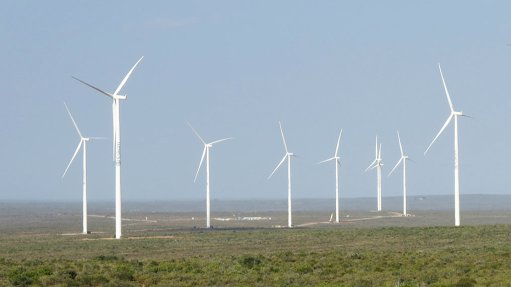For whom the bell tolls
As I heard the church bells toll on the evening of March 16 – which is when I wrote this piece – I was reminded of the phrase ‘for whom the bell tolls’. It refers to the church bells that are rung when a person dies. But the ringing of my church bell did not remind me of someone who had died; rather, it reminded me of the state of the South African economy.
According to Quora, the origins of the phrase ‘for whom the bell tolls’ can be traced to Devotions upon Emergent Occasions, a book written by John Donne:
No man is an island,
Entire of itself.
Each is a piece of the continent,
A part of the main.
If a clod be washed away by the sea,
Europe is the less.
As well as if a promontory were.
As well as if a manor of thine own
Or of thine friends were.
Each man’s death diminishes me,
For I am involved in mankind.
Therefore, send not to know
For whom the bell tolls,
It tolls for thee.
Although the statement references a person, for me, it is just as appropriate when referencing our beloved country the Republic of South Africa.
This is the third of three instalments of this column that I have written this year that have focused on the dire straits of the South African economy finds itself in. The first, titled ‘It’s time to put South Africa Inc into business rescue’, was published on January 17 and the second, titled ‘2020: the year of the IMF bail-out?’, appeared in the January 24 edition. Since then, the outbreak of the coronavirus disease, popularly known as Covid-19, has been wreaking havoc on economies internationally. Its effects on the South African economy are expected to be particularly severe.
What has not helped South Africa is how quickly government debt as a percentage of the nominal gross domestic product (GDP) has deteriorated. According to www.ceicdata.com, in 2008, it was 26.5%, rising to 51.5% in 2016 and 62.2% in 2019.
Any hope that the rate of increase will decelerate or that there will be a reversal any time soon would be misplaced, if a news report by international news service Bloomberg, which was published on October 30 and was titled ‘Bail-outs to push South Africa’s debt ratio above 70% of GDP’ is anything to go by. It quoted the National Treasury as projecting the ratio to increase to 71.3% by 2023 and to 80.9% by 2028. To put this projection in context, the National Treasury previously stated that it projected the government debt ratio to rise to 60.2% in 2024.
If the www.ceicdata.com ‘pace’ from 2016 to 2019 persists, then government’s debt as a percentage of GDP could top the 100% mark in 2025. Considering the challenges facing the South African economy, and those that have not been factored in, such as the impact of Covid-19, this might be a very conservative estimation.
So, how can government turn the situation around? Well, government debt is no different from personal debt. Government needs to reduce its expenditure dramatically, secure significant long-term foreign direct investment and pay its debt.
I leave you with these sobering words from Herbert Hoover, the thirty-first President of the US: “Blessed are the young, for they shall inherit the national debt.”
Article Enquiry
Email Article
Save Article
Feedback
To advertise email advertising@creamermedia.co.za or click here
Press Office
Announcements
What's On
Subscribe to improve your user experience...
Option 1 (equivalent of R125 a month):
Receive a weekly copy of Creamer Media's Engineering News & Mining Weekly magazine
(print copy for those in South Africa and e-magazine for those outside of South Africa)
Receive daily email newsletters
Access to full search results
Access archive of magazine back copies
Access to Projects in Progress
Access to ONE Research Report of your choice in PDF format
Option 2 (equivalent of R375 a month):
All benefits from Option 1
PLUS
Access to Creamer Media's Research Channel Africa for ALL Research Reports, in PDF format, on various industrial and mining sectors
including Electricity; Water; Energy Transition; Hydrogen; Roads, Rail and Ports; Coal; Gold; Platinum; Battery Metals; etc.
Already a subscriber?
Forgotten your password?
Receive weekly copy of Creamer Media's Engineering News & Mining Weekly magazine (print copy for those in South Africa and e-magazine for those outside of South Africa)
➕
Recieve daily email newsletters
➕
Access to full search results
➕
Access archive of magazine back copies
➕
Access to Projects in Progress
➕
Access to ONE Research Report of your choice in PDF format
RESEARCH CHANNEL AFRICA
R4500 (equivalent of R375 a month)
SUBSCRIBEAll benefits from Option 1
➕
Access to Creamer Media's Research Channel Africa for ALL Research Reports on various industrial and mining sectors, in PDF format, including on:
Electricity
➕
Water
➕
Energy Transition
➕
Hydrogen
➕
Roads, Rail and Ports
➕
Coal
➕
Gold
➕
Platinum
➕
Battery Metals
➕
etc.
Receive all benefits from Option 1 or Option 2 delivered to numerous people at your company
➕
Multiple User names and Passwords for simultaneous log-ins
➕
Intranet integration access to all in your organisation

















